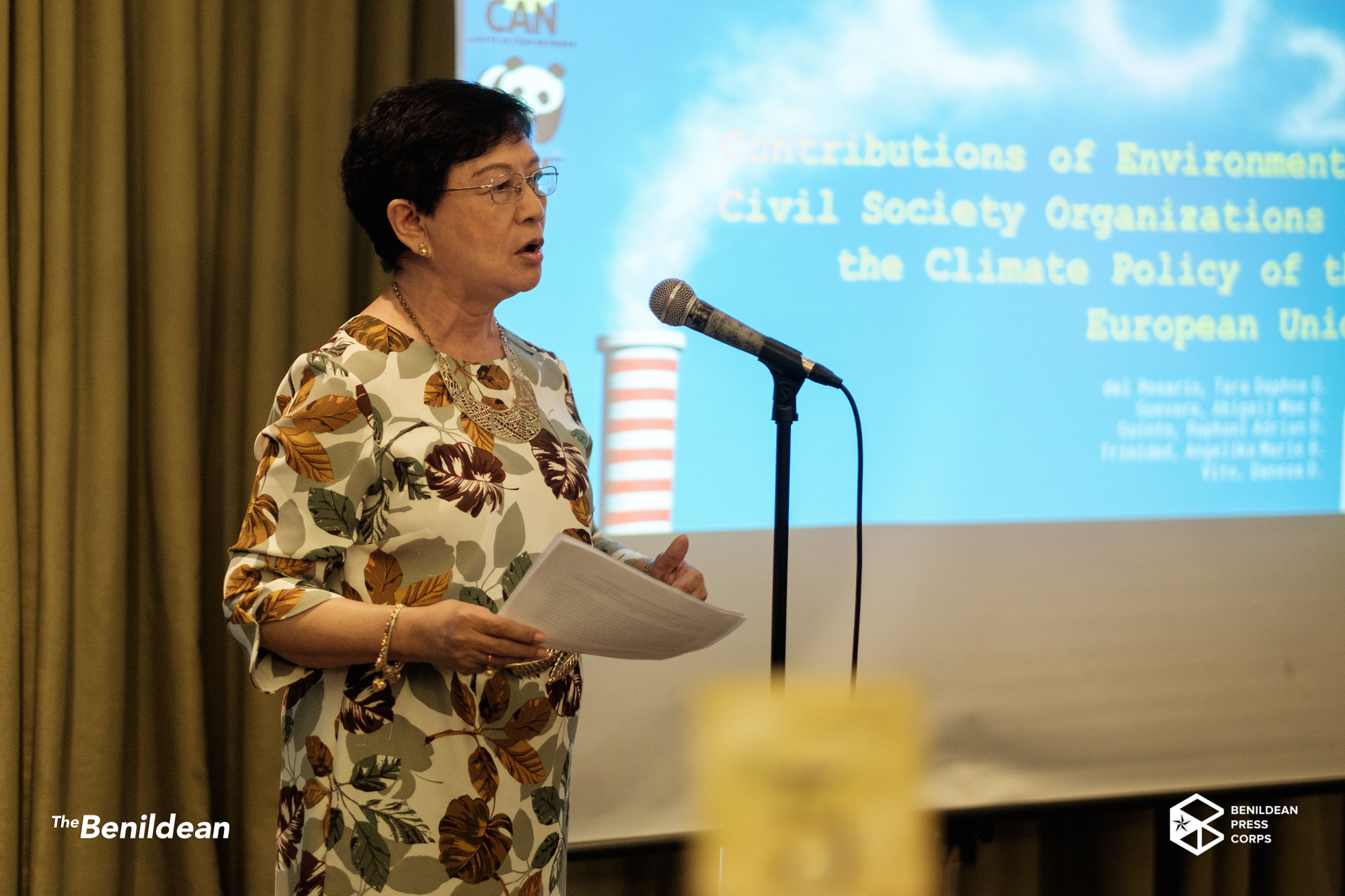To showcase this year’s best Undergraduate Research Papers (URP) on all-things governance, the College’s School of Diplomacy and Governance-Consular and Diplomatic Affairs (SDG-CDA) conducted its second research colloquium last July 4 at Hotel Benilde’s Halle D’Aquitaine.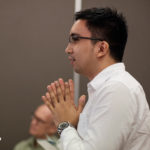
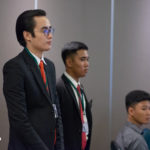

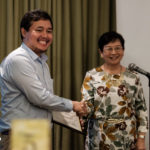
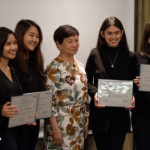
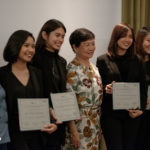
The forum exhibited 17 URPs ranging from four themes namely Diplomacy and International Relations, International Political Economy and Development, Environmental Governance and Diplomacy, and Governance and Development and Women Studies. All works presented were URPs that received the final grade of 4.0, the highest grade in the College’s grading system.
Here are the list of the Undergraduate Research Papers arranged by theme:
Diplomacy and International Relations
- The Evolution of French Foreign Policy: An Analysis using the Adaptive Behaviour Approach by Symon Lao, Alistair Tan, and Raul Olegario III
- Grin of the Dragon: China’s Employment of Soft Power as a Tool of Charm Offensive in Southeast Asia and Africa by Andrea Ariola, Gerald Chanchico, David Enrile, Bruce Lim, and Pauline Undag
- American Hegemony and the Challenge of China: A Neorealist Account of How Great Powers Rise and Decline Amidst Anarchy by Angelica Alvar, Maxinne Ching, Sheila Muñoz, Golden Pangan, and Kobe Yulo
- Explaining South Korea’s Foreign Policy towards North Korea (1993-2017): A Systems Analysis by Louizz Dulay, Edriza Elises, Praise Mangulabnan, Rivka Pintuan, and Celina Simbulan
- The Kremlin Cryptopolitik: A Bifurcation of the International Financial Architecture in the Aftermath of the Annexation of Crimea and Sevastopol by Sheillyn Pingol
International Political Economy and Development
- Sino-African Relations: Partnership for Development or Dependency? by Bianca Dacumos, Ezra De Guzman, Maria Mancia, Samantha Singian, and Patricia Vasquez
- The Impact of State-Driven Educational Innovation on Labour Market Competitiveness and its Implications on the Pursuit of Inclusive Growth: A Comparative Study of Japan, Malaysia, and the Philippines by Laurene Co, Kathlia Carlos, and Allyson Reyes
- Lost Generation, Missing Future? An Exploratory Investigation of the NEETs Phenomenon in South Korea, Turkey, and the Philippines by Jesi Blantucas, Timothy Bumagat, Bernice Lopez
- The Political Economy of Power Sector Regulation in the Era of Privatization: The Case of the Philippine Electricity Industry (PEI) by Alyssa Bueno, Lorraine Castro, Patricia Lo, Emille Magbanua, and Shane Yumikura
- The Promise Versus Reality of Washington Consensus Strategies: An Assessment of the Political, Economic, and Social Consequences of Select IMF and World Bank Programs in the Philippines by Jael Acuesta, Ef Aguilar, Kay Cordero, Karen Fernandez, and Beatrice Grico
Governance and Development and Women Studies
- Benchmarking E-Government Service Provision in the Age of New Public Management: Emulating the Successes and Learning from the Mistakes by Celine Abella, Ainna Comia, Joella Leocadio, Ellen Nocon, and Elisha Sanchez
- Liberating the Freedom Islands from an Unsustainable Future: An Assessment of LPPCHEA using Collaborative Governance Standards by Samantha Bacaron, Kariah Cardinez, Psyche Jumarang, and Julia Pascual
- Women in Modern Philippine Local Politics: Political Barriers Experienced by Filipina Leaders in Local Government Units (Manila and Muntinlupa City) by Danielle Arreza and Jaenen Mendoza
- Outcomes Assessment of Gender-mainstreaming in Higher Education Towards a Gender-Fair Society: The Case of St. Scholastica’s College Manila by Patricia Gongora and Johann Padilla.
Environmental Governance and Diplomacy
- Environmental Diplomacy as a Tool for Resolving Transboundary Resource Conflicts: The Case Study of India and Bangladesh and their Shared Use of the Ganges River by Vanessa Lim, Sarah Nelson, Monica Sanchez, and Thea Villalon.
- Neoliberalism and Unclean Development: Spilling on MNC Environmental Violations in Nigerian Waters by Gabrielle Llenado, Nicole Montesines, Ana Parungao, and Erylle Popatco.
- Contributions of the Environmental Civil Society Organizations to Climate Policy of the European Union by Tara del Rosario, Abigail Guevara, Raphael Guinto, Angelika Trinidad, and Danesa Vito.
Meanwhile, in an interview with The Benildean, one of the presenters, Alistair Tan, shared his research about “The Evolution of French Foreign Foreign” and how they aimed to analyze it using the Adaptive Behavior Approach.
“My group’s URP elucidated the different diplomatic contribution of France to the school of diplomacy. This can help foreign research specialists better understand the actions of France to help them formulate better policies in dealing with France. Students may use the URP to get a better glimpse of diplomatic history and different diplomatic concepts,” he said.
According to him, their paper tackled several diplomatic concepts and strategies employed by France and its diplomatic contribution in the pursuit of its interests which his group aims to be soon utilized and be used as a reference of future researchers and upcoming CDA students.
Among the student researchers, there were also an additional of five more researches by experts and an alumnus of the CDA who were all presenting as Faculty Presenters.
Such works were:
- Diplomacy 2.0: A Case Study of EU Digital Diplomacy in the Philippines by Manuel Enverga III, an assistant professor of European Studies at the Ateneo de Manila University.
- Everyday Feminist Political Economy and Narratives of Migrant Bride Returnees from South Korea by Dr. Jean Encinas-Franco, an assistant professor in the department of political science of the University of the Philippines-Diliman, and her colleagues’ Raissa Lumampao, and Kyungmin Bae.
- Phronetic Leadership in the Philippines Towards an Innovative and Agile Governance by Dr. Lizan Perante-Calina, executive director of the Philippine Administration and associate editor of the Philippine Governance Digest.
- Implications of the 2018 US Midterm Congressional Elections by Dr. Benjamin Muego, a special lecturer of International Law and Comparative Foreign Policy in SDG.
- Optimizing Water Provisioning Services of Forest Plantations in Water Scarce Areas: A Cost-benefit Analysis of Reforestation Approaches in Maasin Watershed Forest Reserve, Iloilo by Yuji Enriquez, alumnus presenter.
On the other hand, Ms. Susan Lucero, CDA professor and URP Coordinator, said this year’s research colloquium exceeded its designated goals and expectations, such as to showcase the research outputs of the CDA students and faculty, than the maiden run of the colloquium last year.
“I always say that the subsequent year should be an improvement of the previous years so whatever was good from last year should be built upon… the shoulders of the good students last years,” Lucero said.
The forum was attended by school officials, professors, students, alumni, and prominent figures in the field of diplomacy and governance. Among the notable persons spotted at the event were the European Union (EU) Amb. Franz Jessen and former Solicitor General Atty. Florin Hilbay who were keynote speakers. Other school officials who graced the event were Bro. Dennis Magbanua, Chancellor Robert Tang, SDG Dean George Binay, and CDA Chairperson Gary Ador Dionisio, among others.
The SDG-CDA Research Colloquium is a project of the Consular and Diplomatic Affairs program as a part of its course requirement and is now on its second year since its establishment last year. It is envisioned to be an annual tradition of the community with the aims of cultivating a research culture within the members of the CDA program.
Photos by Kel Santos

